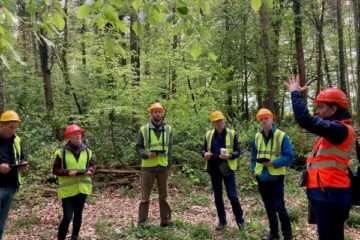The Irish Natura & Hill Farmers Association (INHFA) is holding a national conference to highlight concerns made by many of their members on the forestry expansion.
Public representatives, both at home and in Europe, are to attend the conference this Friday night (January 19th) at 8pm in the Bush Hotel Carrick-on-Shannon.
The INHFA’s spokesperson on forestry Gerry Loftus said:
“The conference will address how the forestry expansion is impacting on farming, communities and the environment. It will also provide the opportunity for those currently living in the shadow of a rapidly increasing forestry belt to come and have their say.”
Citing a report from the Council for Forestry Research and Development (COFORD) which was issued in late 2016, Loftus continued:
“An agenda is clearly developing that could see large areas of land in western counties planted.”
The report highlights 1.8 million hectares of land alleged to have limited agricultural activity with 1.08 million hectares suitable for forestry. This, he added, “accounts to over 25% of the agricultural land and, if implemented on the ground, will have devastating consequences for counties like Leitrim”.
“A significant development in relation to forestry in recent years is the perceived carbon off-set that it can provide. This of course, while economically damaging to the forested area, could allow for increased economic and agricultural activity in other parts of the country and maybe that is still the agenda.
“We need to look at exactly what we want from forestry and look at the bigger picture as regards rural depopulation, water quality and the effect it can have on rivers and streams.”
With regard to our rural communities, Loftus outlined how difficult the last decade has been through business closures, emigration, unemployment and the withdrawal of services. Farming and the money spent around it is what has kept many of these communities going.
Farm families, he added, “are often what keeps the schools open, the GAA clubs going and the community alive, because for better or worse the farming activity they are involved in keeps them there”. Forestry, he concluded, will never do this.



